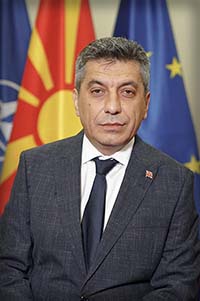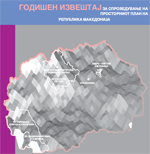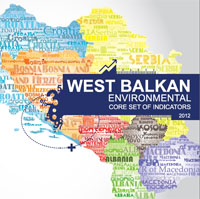Today in Bitola, in the presence of the Minister of Environment and Physical Planning Kaja Shukova and the mayors of Bitola, Tetovo and Kumanovo, Konjanovski, Kasami and Dimitrievski, the Head of EU Delegation in our country David Geer and Gianni Volpin from the United Nations Office for Project Services (UNOPS) signed the agreement for the implementation of the EU project for clean air.
 The funds are provided through the EU – IPA 3 Environmental Programme, and the Delegation of the European Union in North Macedonia will take all the necessary measures to ensure the smooth implementation of the activities and the achievement of the expected results. The implementation will be carried out by UNOPS, and the Ministry of Environment and Physical Planning is responsible for the overall coordination of activities and stakeholders and is the bearer of the dialogue on sectorial policies.
The funds are provided through the EU – IPA 3 Environmental Programme, and the Delegation of the European Union in North Macedonia will take all the necessary measures to ensure the smooth implementation of the activities and the achievement of the expected results. The implementation will be carried out by UNOPS, and the Ministry of Environment and Physical Planning is responsible for the overall coordination of activities and stakeholders and is the bearer of the dialogue on sectorial policies.
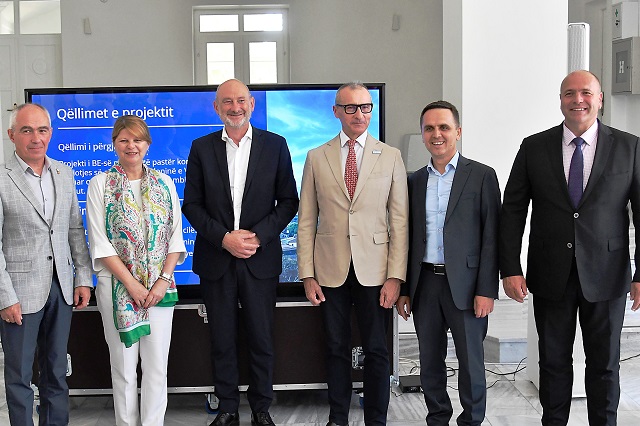 In his welcoming speech, European Ambassador Geer referred to the project and the support that the EU provides to the country on the way to European integration, as well as in improving the living conditions of the citizens.
In his welcoming speech, European Ambassador Geer referred to the project and the support that the EU provides to the country on the way to European integration, as well as in improving the living conditions of the citizens.
“These 10 million euros are intended to improve air quality in four cities, Bitola, Kumanovo, Skopje and Tetovo. It includes practical cooperation with the Government and the concerned local municipalities, it includes implementing more ecological heating in 70 municipal buildings, planting 6000 seedlings, installing three air quality monitoring stations, providing six ecological buses in Skopje, as well as supporting the expansion of the central heating in the capital city. This is just another example of how EU aid can improve the lives of citizens and contribute to sustainable modern living,” Geer noted.
“Air pollution is one of the biggest challenges in the environment, especially in urban centers, with serious health and economic consequences. That is why we must act now and act together to overcome these challenges. I hope that through this project we will jointly contribute to the improvement of air quality for citizens, said Gianni Volpin, representative of the United Nations Office for Project Services, UNOPS.
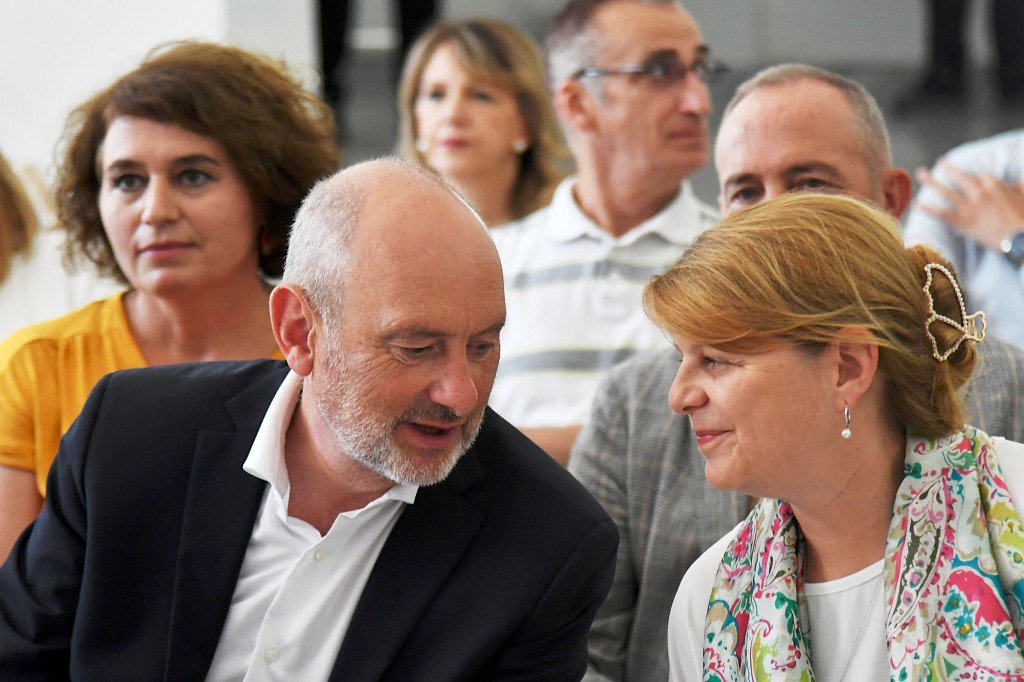 Minister Shukova emphasized that in recent years, the awareness of the importance of the environment and the responsibility of each individual, of local institutions, as well as in the management of intersectoral policies, is at an increasingly high level. She said that only with such a common approach we can successfully implement the environmental policies and achieve visible results. Her expectation is that the positive experiences from the project will be transferred to other municipalities in the country.
Minister Shukova emphasized that in recent years, the awareness of the importance of the environment and the responsibility of each individual, of local institutions, as well as in the management of intersectoral policies, is at an increasingly high level. She said that only with such a common approach we can successfully implement the environmental policies and achieve visible results. Her expectation is that the positive experiences from the project will be transferred to other municipalities in the country.
The mayors of the three largest cities in the country covered by the project addressed the event and expressed readiness for cooperation and maximum involvement in the realization of this complex project, which will implement activities in several detected areas of intervention.
The main objective of the “EU Clean Air” project is to achieve “Improved air quality in large cities in North Macedonia” through interventions in the 70 heating systems of public buildings that currently burn coal, wood and heavy oil and replacing them with high-efficiency boilers gas-based, primarily kindergartens, schools and hospitals, which will reduce CO2 and PM emissions.
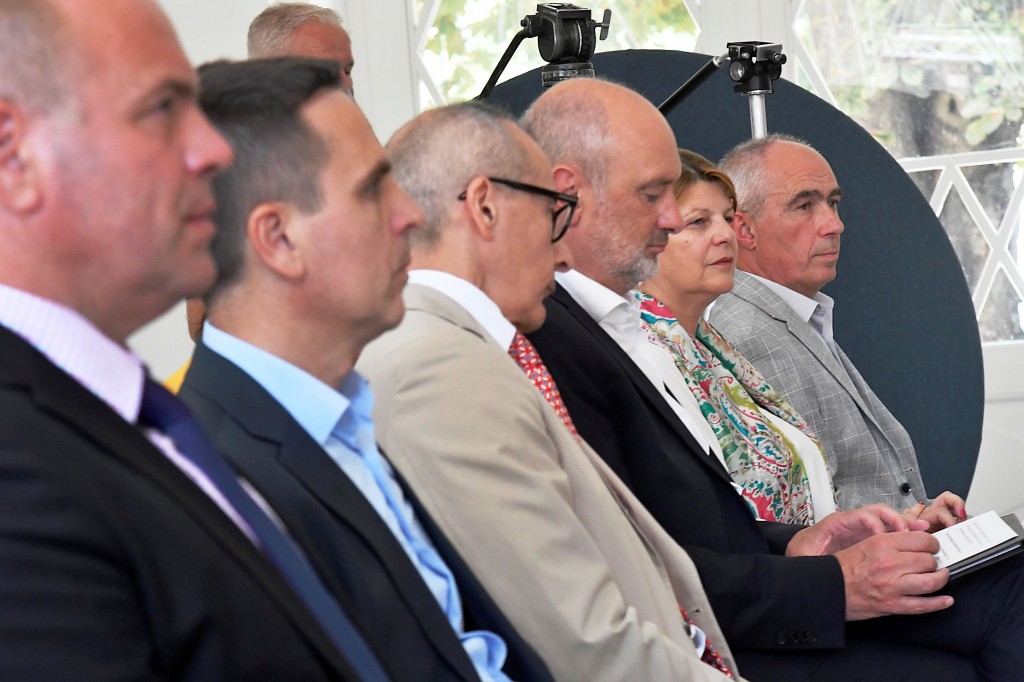 The intervention is complementary to the “renovation wave” under the European Green Deal and will support the recipient municipalities, the Ministry of Health and the Ministry of Education and Science, as beneficiaries.
The intervention is complementary to the “renovation wave” under the European Green Deal and will support the recipient municipalities, the Ministry of Health and the Ministry of Education and Science, as beneficiaries.
It will also intervene in the reduction of pollution created by public transport. Namely, Skopje has developed an Action Plan for a green city to identify the most urgent environmental challenges and to develop targeted investment and political activities to solve those issues. Within this plan, transport is recognized as one of the main sources of air pollution (20%of the total) and the need to renew the existing, outdated bus fleet has been identified. The project will provide 6 low emission buses. According to estimates, as an immediate effect of the renewal of the bus fleet, a significant reduction of PM particles, CO and NOx coming from public transport will be observed.
Also, as part of the measures to respond to air pollution, about 6000 trees will be planted, which, in addition to the effect on reducing the amount of CO2 in the atmosphere, will enable the absorption of some of the PM particles, limiting the effects of urban heat islands, and the greening of certain locations in the cities, such as the banks of the Vardar River, will make the environment very pleasant and more attractive for recreational activities.
The project envisages the provision of prerequisites for the expansion of central heating in Skopje, since household heating has been detected as one of the main culprits of air pollution during the heating season and accounts for at least 32% of the total harmful emissions.
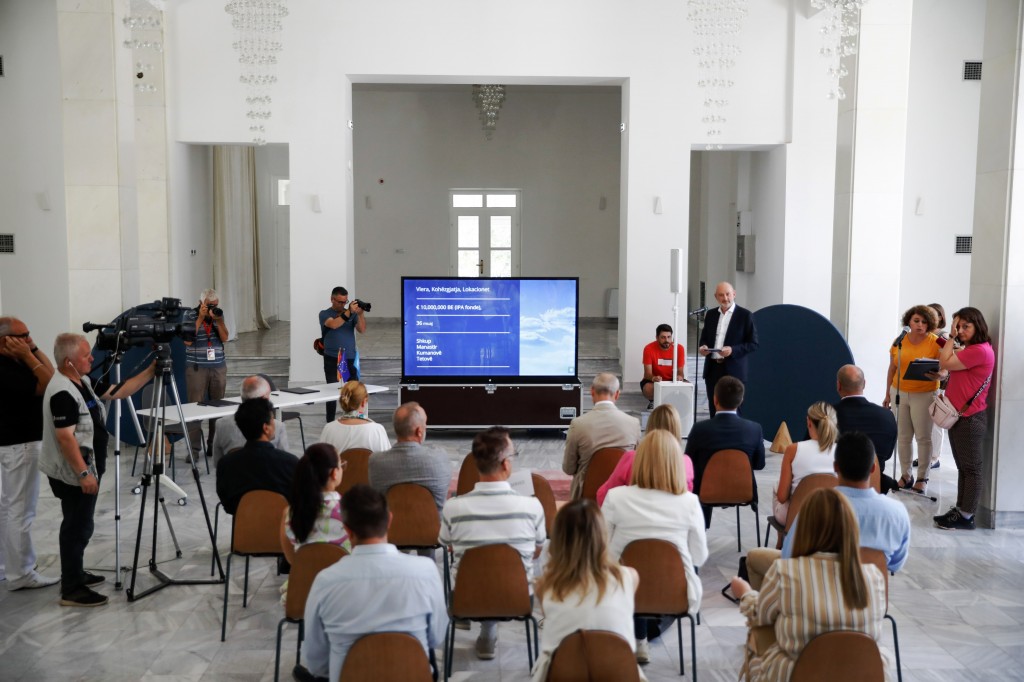 In this direction, IPA plans to finance the preparation of a full feasibility study for further expansion of the central heating network. This should be done in close connection with the strengthening of the Energy Efficiency Fund to support the renovation of households in order to adapt the connections and improve the energy efficiency of their homes.
In this direction, IPA plans to finance the preparation of a full feasibility study for further expansion of the central heating network. This should be done in close connection with the strengthening of the Energy Efficiency Fund to support the renovation of households in order to adapt the connections and improve the energy efficiency of their homes.
In addition, these measures will be accompanied by an intensive and comprehensive campaign to raise public awareness and inform about the benefits of central heating.
The project will be implemented in a period of 3 years and has a value of 10 million euros.






